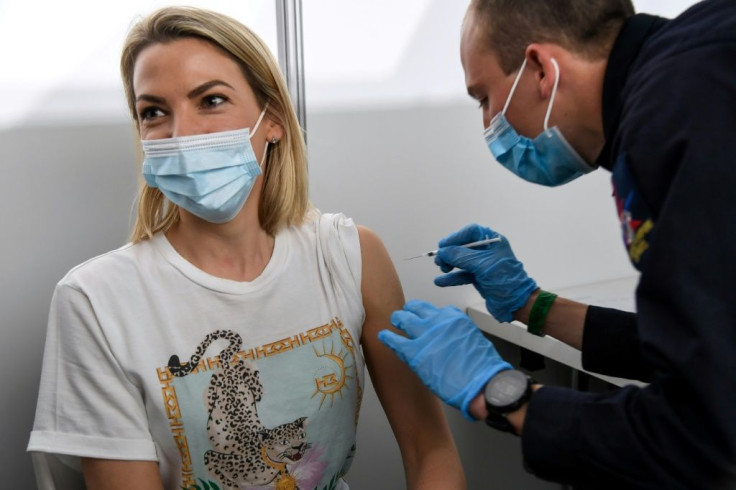COVID-19 Vaccines May Not Protect These Americans From Virus
Millions of Americans have already received at least one dose of a COVID-19 vaccine, but some of those who have received their shots may not be as protected against the virus as they initially hoped.
According to a study, those who have immuno-compromised systems, mainly because they take immunosuppressive drugs, could wind up not getting antibodies from their vaccines, keeping them at risk of the deadly virus. An estimated 6 million Americans taking such drugs could actually be seeing that their medications weaken the vaccine, which gives them less protection.
The reason there are very few answers for those taking the drugs, as well as their doctors, about what can be an effective way for them to stay protected against COVID-19 is because the group was largely excluded when companies like Pfizer, Moderna, AstraZeneca and Johnson & Johnson were in clinical trials for their shots.
As a result, some patients have gone for third doses of a vaccine, with varied results, CNN reports. Until more conclusive information is available on the best course of action, those who are affected by this dilemma only have one other option—counting on others to get their vaccines, which reduces their risk of exposure from others.
“Even if you think you don’t need to, think about this as a donation of your own goodwill to those who are more vulnerable,” National Institutes of Health Director Dr. Francis Collins told CNN. “That’s the best hope they have.”
However, that may not be the news those on immunosuppressant drugs, such as those who received organ transplants, want to hear, as the United States is set to fall short of President Biden’s goal to have 70% of Americans at least partially vaccinated against COVID-19 by July 4.
While information from the CDC shows that at least 63.2% of adults have received at least one dose of a COVID vaccine, Data from the New York Times revealed that at least 30 states won’t meet the goal, and of those, 15 aren’t even close, with Indiana, North Carolina, Georgia, North Dakota, Oklahoma, Missouri, South Carolina, Idaho, Arkansas, West Virginia, Tennessee and Wyoming all set to only reach a minimum of 50-58% of vaccinated adults by that deadline. Mississippi, Alabama and Louisiana are all set to not even hit a 50% benchmark, which is troubling to officials.
Hesitancy to get the vaccines has seemingly been the biggest hurdle in most of these states, as well as smaller numbers of doses available, which makes it harder for some. Companies and states themselves have since unleashed a flurry of campaigns to try and win over the skeptics. California, Ohio, Colorado and West Virginia have all unleashed giveaways of cash and prizes to those who receive the shot, with several companies following suit, including CVS and Kroger. Anheuser-Busch has also upped the stakes for the entire country, stating that those who enter their freebie will receive a free drink on the company if the nation meets the 70% mark.
Hawaii has also recently joined the states with incentives as well, offering prizes of vacation packages and airline miles, CNN reports.

© Copyright IBTimes 2024. All rights reserved.





















